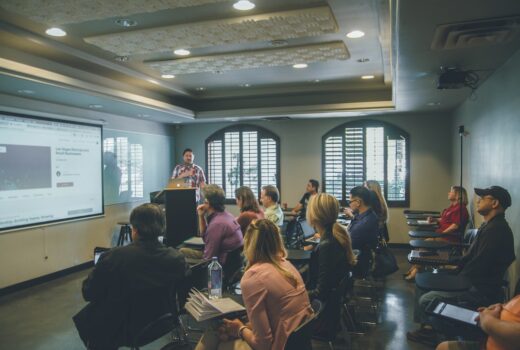‘Native’ open access publishers propose a new publishing deal

In the midst of a multitude of on-going open access negotiations with major publishing houses throughout Europe a consortium of mainly ‘native’ open access publishers Native open access refers to publishers that have never been anything but open access. The terminology doesn't apply to all of the publishers in the consortium. now raises the stakes. They propose a provision that could drastically alter the outcome of the open access negotiations. Where most open access deals involve a price hike, the consortium offers a price reduction.
The TTOA consortium The consortium is an initiative of the Fair Open Access Alliance (FOAA). , consisting of PLoS, Ubiquity Press and others PLOS, MDPI, De Gruyter, Open Edition, Copernicus Publications, Ubiquity Press, Brill, and OLH. In addition to these publishers, the following organizations are collaborating partners: CWTS (Leiden University), QOAM, MPDL. , offers an open access “platform” set out to facilitate the publication of peer reviewed and open access publications in their journals. After submitting an article to a common portal authors indicate a hierarchy of journals in which they hope their article gets published. Using a ‘portable’ system of peer review the publication will then be guided to the final journal in which it is published.
The publishers will charge a fee of €1400 on average. This is a number much lower than the current €3800 – €5000 per article the Max Planck Digital Library (MPDL) estimates the current price per publication to be. This fee will come with a transparent breakdown of the costs and prevents any charges to the author itself, preventing the possibility of double dipping The term double dipping refers to the practice in which an institute has a paid subscription to a certain journal while their own authors also get charged for publishing. .
European bid
In order to reach the ambitious goal of 100% open access in 2020 the European Commission recently opened a call for an Open Research Europe Publication Platform. The requirements for this platform are that the platform must be open source; the costs for publishing each article must be transparent; authors should be exempt of any charges; all content published on the platform must be immediately and freely accessible to all readers; and the platform should be able to integrate the publication of research results sponsored by other funders.
In their press statement the TTOA consortium calls the EU initiative “laudable” but explains why it has refrained from submitting a proposal: “researchers are reluctant to publish in new (mega)journals that have yet to develop quality standards and a reputation”. With their proposal the consortium, hosting a number of renowned journals, with the backing of a number of collaborating partners such as the Max Planck Digital Library and CWTS (Leiden University), thinks to offer an alternative to both a new publication platform and the ‘big deals’ with other publishers.
At the very least this proposal is poised to shift the narrative of the ongoing negotiations and may very well influence the plans of the special EU envoy for open access Robert-Jan Smits. Smits earlier announced to be announcing his plan for the path to 100% open access this Summer, thereby hinting that the ‘big deals’ might not be a part of this plan. The consortium alludes to this in their statement: “We trust that our initiative will support the plans of the Open Access Envoy of the European Commission to accelerate the transition to full and Open Access in line with the political target date of 2020.”
Update
In a written response Robert-Jan Smits hails the initiative as a positive development. “This impressive initiative shows that the Open Access movement is more than ever committed to accelerate through concrete measures, the transition to full and immediate Open Access to the scientific publications that are the result of publicly funded research. It supports my ambition to realise this transition by 2020, in line with the conclusions of the EU science ministers. I find the TTOA approach innovative and the partners involved, rock solid.”
Meest Gelezen
Vrouwen houden universiteit draaiende, maar krijgen daarvoor geen waardering
Wederom intimidatie van journalisten door universiteit, nu in Delft
Hbo-docent wil wel rolmodel zijn, maar niet eigen moreel kompas opdringen
‘Burgerschapsonderwijs moet ook verplicht worden in hbo en wo’
Raad van State: laat taaltoets nog niet gelden voor hbo-opleidingen



